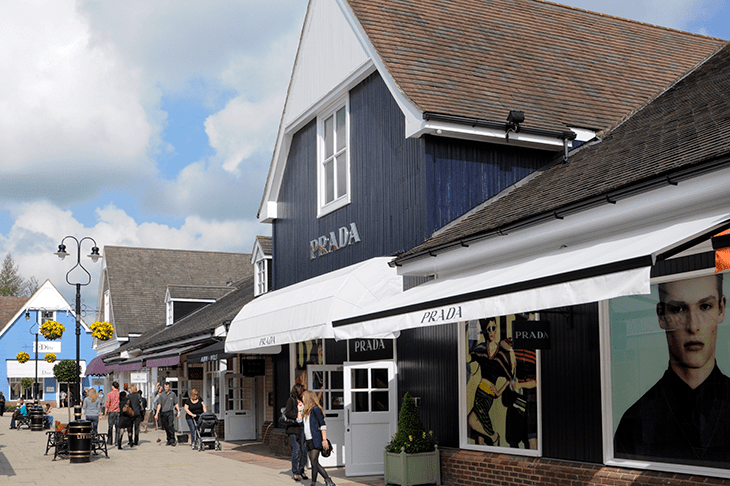Retail footfall will be the first measure of recovery this spring. Everywhere I look, from central London to small-town Yorkshire, shopkeepers who survived the winter cull have been dusting their counters, cleaning their windows — and waiting in their doorways for the crowd of customers who have accumulated £150 billion of savings during lockdown and, despite the cornucopia of online offerings, can’t wait to start browsing and shopping for real again.
Indications were mixed at the beginning of the week, with numbers still down on pre-pandemic levels, but at least the stock market is buying the theory. The FTSE 350 General Retailers index, which includes the likes of Dixons Carphone, Dunelm, JD Sports, Marks & Spencer and Pets at Home, is up 10 per cent in the last month and 75 per cent from its first lockdown low in March last year.
But which will do better: big-name chains or local independents with lower overheads and no debt? My feeling is that renewed physical shopping habits will favour the latter. And I certainly wouldn’t want to be an investor in giant malls — following the collapse into administration last year of Intu, owner of the Trafford Centre, Lakeside and Gateshead’s Metro Centre, the Hammerson property group is selling off a portfolio of UK retail parks at written-down values to a brave private equity player from Canada.
Bravest of all, I’d say, are the punters behind the new £160 million McArthurGlen Designer Outlet West Midlands which opened this week with 80 branded stores and a free car park somewhere off the A460. It’s ‘the best thing to happen to Cannock’, we’re told, and the next Bicester Village — but without the million Chinese visitors a year that made Bicester a pre-pandemic retail phenomenon, it’s going to need a sustained stampede of local bargain hunters.
Global tax trap
US treasury secretary Janet Yellen says she’s ‘working with G20 nations to agree to a global minimum corporate tax rate that can stop the race to the bottom’. Starting with a proposed increase in America’s own headline rate of tax on corporate profits from 21 per cent to 28 per cent (Trump having slashed it from 35 per cent), this is a major policy shift from the Biden regime. It attunes both with Rishi Sunak’s raising of UK corporation tax from 19 per cent to 25 per cent by 2023 and with long-running efforts by the OECD to bring the world into line and discourage multinationals from ‘profit shifting’ to tax-haven domiciles.
If the effect is that the burden of paying for the pandemic falls less on individuals through income or wealth taxes and more on companies — and especially on habitual tax minimisers such as Amazon, Facebook, Google and Starbucks — voters will naturally cheer. The UK Treasury and the European Commission have both, we’re told, indicated initial support for the ‘minimum global rate’ idea. But we should be careful what we wish for. American governments are rarely in the business of international altruism and President Joe Biden has a $2 trillion package of pandemic relief measures to pay for. There’s a vital distinction between nations (such as Ireland) where economic development and job creation depend on attracting inward investment by offering competitive tax rates, and mountain principalities or Caribbean islands that make a living simply by offering near-zero tax and scant regulatory oversight to all-comers. The former is legitimate; the latter need closing down.
The UK may have much more to gain from keeping its corporate tax rates lower than the EU’s than from signing up in a hurry to ‘global’ measures designed first and foremost to boost US Treasury revenues.
A new Britannia
When I was introduced to the Duke of Edinburgh, at a crowded reception in the late 2000s, I experienced the full gimlet-eyed, no-waffle focus that many have described and that would have made him a superb non-executive director of FTSE 100 companies if his post-naval career had taken a different course: ‘Aha! How’s The Spectator doing these days? What’s yer circulation?’
Having listened intently to my reply he barked ‘Good! Well done!’ and strode on. Afterwards I sent him a copy of our 180th anniversary issue, full of gems from the archives which I thought he might like — though my covering note forebore to suggest that the best place for it would be the ducal downstairs loo, where he could enjoy it undisturbed.
On the strength of that brief encounter I was moved shortly afterwards to campaign here for a 90th birthday present for the Duke in the form of a new royal yacht to replace Britannia, funded by ‘a whip-round in the City’ to atone for the sins of the 2008 financial crisis. Then and now, it would have cost a tiny percentage of the annual bonus pot.
‘How the nation would cheer,’ I wrote — and it still would if the Queen were to be presented for her own 95th, next week, with the promise of a yacht to be called, of course, the Prince Philip. What better floating platform could there be for selling British products and services to the non-EU world, as Britannia used to do? A retired Royal Navy frigate, suitably refitted, would be ideal.
Sunny Monday
I celebrated our new partial freedom at the Merchants’ Coffee House in the garden of the ancient hall that is the home of the Company of Merchant Adventurers of York, of which I’m a member. The company traces its foundation to 1357, less than a decade after the devastation of the Black Death — which historians say made the city more prosperous, within a few years, as a new generation of traders and craftsmen established themselves. The human and economic impact of pandemic this time has been a tiny fraction of what it was then, but the cycle of renewal will be the same. It began, for me, with a cappuccino in Monday morning’s sunshine.







Comments